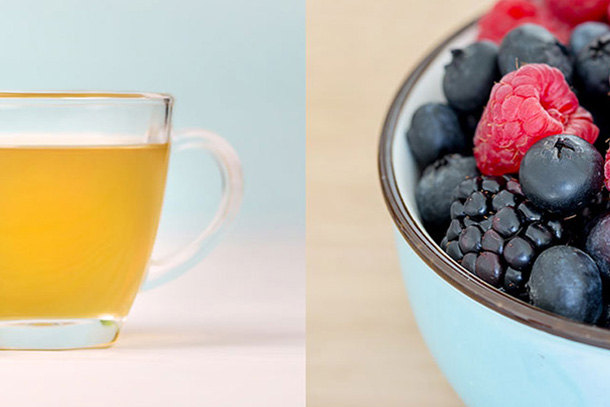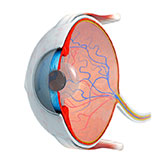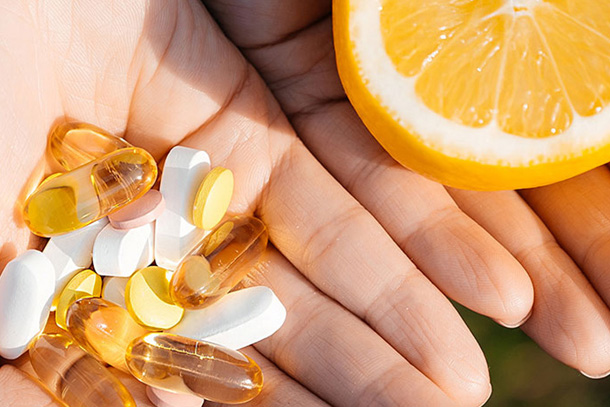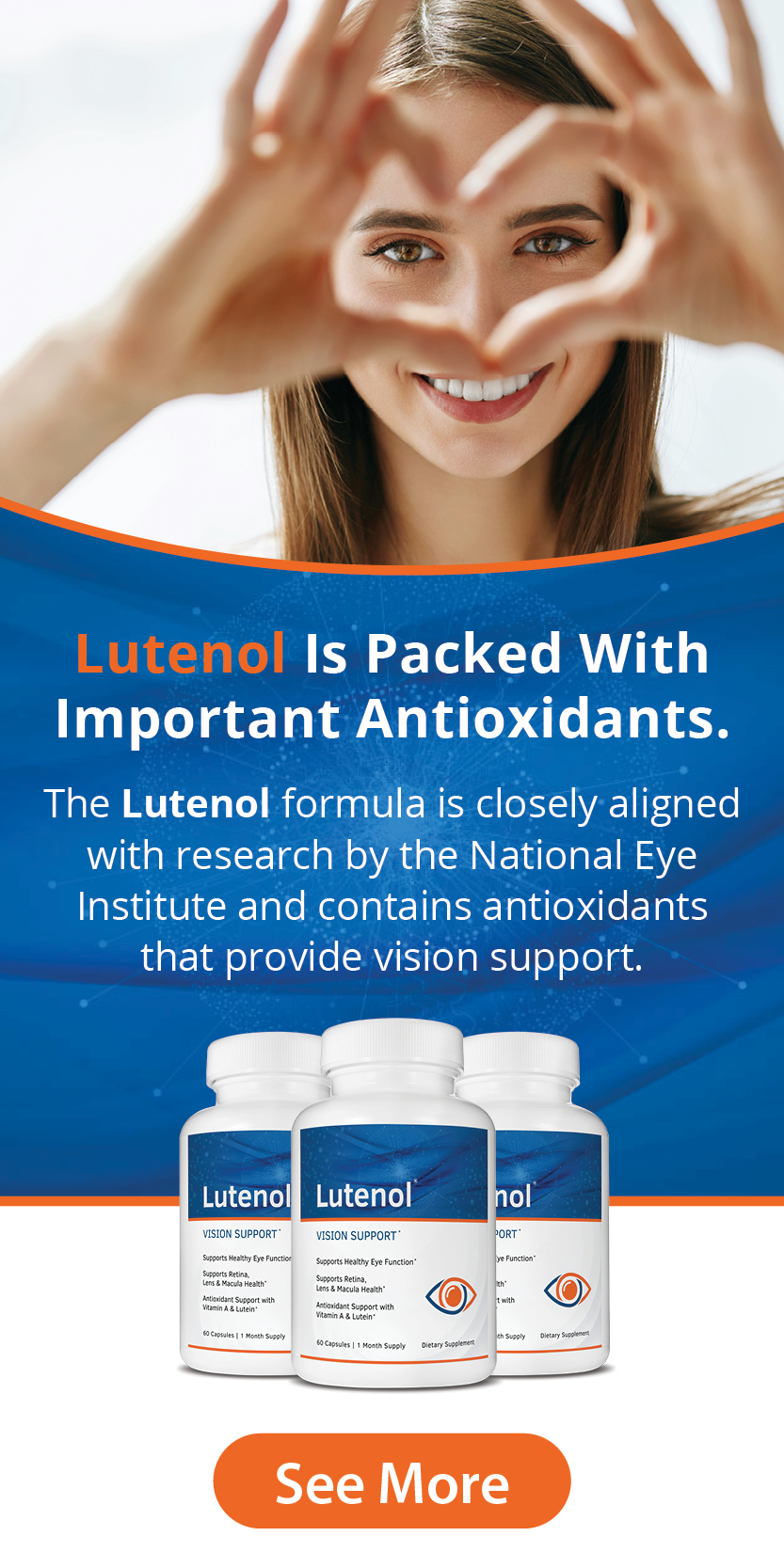
Antioxidants are good for eye health and vision
All eyes on antioxidants
Did you know what you eat and don’t eat can affect your eye health and vision?
Achieving a nutritious diet is a balancing act. Consuming the recommended amount of fruits, vegetables, grains, protein foods and dairy should be enough to support healthy vision. Antioxidants are an essential part of the balancing act. But what are antioxidants and why do the eyes need them?
What are antioxidants?
Antioxidants are powerful compounds that are essential for the survival of all living things.
The human body generates some antioxidants and absorbs them from a variety of animal and plant foods. They are thought to help delay or prevent cell damage in the body by neutralizing free radicals.
Free radicals are unstable, highly reactive molecules. They are naturally formed during exercise and when the body converts food into energy.
Humans can also be exposed to free radicals by environmental sources such as cigarette smoke, air pollution and sunlight.
These unstable molecules have an uneven number of electrons, so they scavenge the body to find another electron to pair with. This creates a chain reaction because the attacked molecule loses its electron and becomes a free radical itself.
But antioxidants are able to donate an electron to a free radical without becoming unstable. Antioxidants are, therefore, able to suppress the cell-damaging action of free radicals.
Free radicals are not all bad and oxidative damage is a normal part of human life. But the body needs to maintain a certain balance of antioxidants and free radicals to avoid oxidative stress, which can damage DNA and cells.
How do antioxidants support eye health?
The eyes are vulnerable to free radical damage because they are exposed to harmful light, oxygen and pollutants in the air.
The sensitive visual system is under continuous pressure from oxidative stress, which affects all structures of the human eye – including the ocular surface, lens and retina.
With high metabolic activity, the vulnerable visual system has a strong need for antioxidants to maintain normal heath. A diet rich in antioxidants is important to support eye function and help to suppress damage caused by free radicals.
Which antioxidants support eye health?
Obtaining the broad spectrum of nutrients needed for healthy eyesight can be a challenge.
The average American diet contains a lot of processed foods, which doesn’t do much to support healthy eyes.
It is important to have the right building blocks to support the sense majority of humans rely on the most.
See below for some of the most important eye health antioxidants and what foods you can consume to gain their benefits.
Bilberry
A bilberry is a small edible berry that resembles a blueberry. One of the richest natural sources of anthocyanins, which possess many health benefits, the bilberry is commonly used to support ocular health – particularly the retina. The bilberry is high in antioxidants.
Recommended intake: The standard dose of the dried berries is 20-60g a day.

Lutein & Zeaxanthin
Lutein and zeaxanthin are carotenoids that act as powerful antioxidants. They are organic pigments, usually found in plants, that help to shield the eyes from harmful light. Major clinical trials sponsored by the National Eye Institute found 10mg of lutein and 2mg of zeaxanthin a day is beneficial. But according to the National Center for Biotechnology Information, the average American adult only consumes about 1 - 2mg of lutein per day.
Recommended intake: Lutein and zeaxanthin are often found together in foods. They are in leafy green vegetables, including kale and spinach. One cup of raw kale contains about 11mg of lutein, but cooking kale reduces the lutein by about half. The same amount of spinach contains about 8mg of lutein.

Vitamin A
Vitamin A is an essential micronutrient with antioxidant properties that supports vision. It helps to maintain a clear cornea – the outer layer of the eye – and promotes vision in low-light conditions.
Recommended intake: The recommended daily allowance of vitamin A is 900mcg*, with the upper limit 3,000mcg (10,000 IU). About 1 cup of raw carrots a day will provide the recommended amount.

Vitamin C
Also known as L-ascorbic acid, vitamin C is an essential vitamin the human body is not able to produce. It is an effective antioxidant that is vital for the formation of collagen, an important structural component of blood vessels, tendons and ligaments, including those in the eyes.
Recommended intake: About one cup of Brussels sprouts a day is enough to meet the recommended intake of at least 90mg* of vitamin C. The antioxidant vitamin is also found in oranges, strawberries and tomatoes. It is safe to consume more vitamin C than the recommended intake, but no more than 2000mg a day.

Vitamin E
Another antioxidant vitamin important for vision is vitamin E. The retina is highly concentrated in fatty acids, which are an integral part of all cell membranes that protect the eye. Free radicals attack these fats and break down the retina, but vitamin E suppresses free radicals.
Recommended intake: It is recommended people consume about 15mg* (22 IU) of vitamin E a day, with the upper limit for adults about 1000 IU. Healthy sources include almonds, sunflower seeds and avocadoes. At 20mg per tablespoon, wheat germ oil is the richest natural source of vitamin E. Twenty-three almonds provide about half the daily recommended intake.

Zinc
Zinc is a mineral that functions as an antioxidant. Healthy zinc levels support normal eye function by maintaining the health of the retina, cell membranes and protein structure of the eyes. It plays a vital role in transporting vitamin A from the liver to the retina to produce melanin, a protective pigment in the eyes.

Recommended intake: Legumes, seeds, meat, dairy and seafood are good sources of zinc. Oysters are a potent source, with 74mg in a 3-ounce serving of cooked, breaded and fried oysters. That is almost seven times the average daily value of 11mg.
The Verdict
Not all antioxidants are equal – they each behave differently based on their chemical properties, and they suppress different free radicals. This is why it is important to consume a variety of fruits, vegetables and other foods with antioxidant properties.
Another option to ensure you are gaining the benefits from important antioxidants is to take a scientifically-balanced eye support supplement. At Lutenol, we think we have created the optimal formula to support eye health.
A specially formulated supplement that contains vitamins, minerals and herbal extracts shown to support eye health – including bilberry, lutein, zeaxanthin, zinc and vitamins A, C and E – is a great way to look after your eyes nutritionally.
* These values are based on the daily recommended intake for an adult male.



